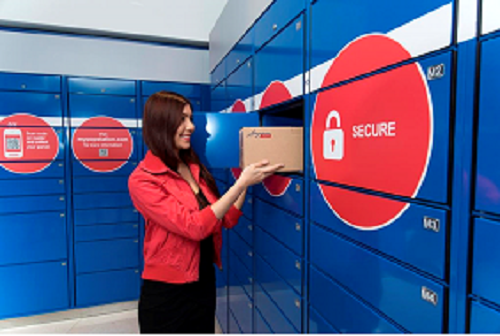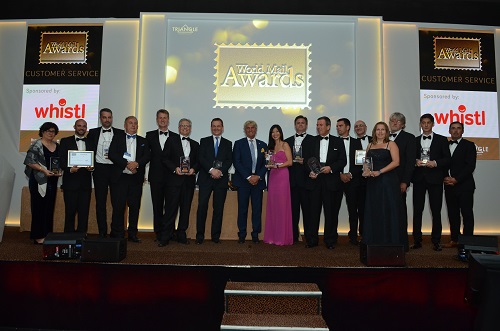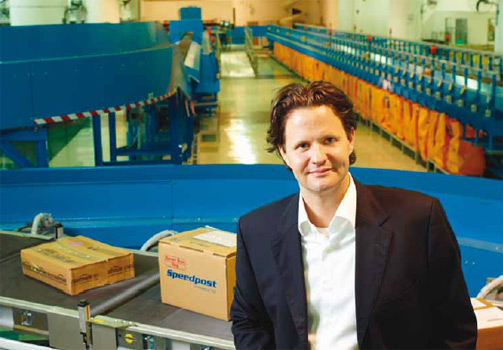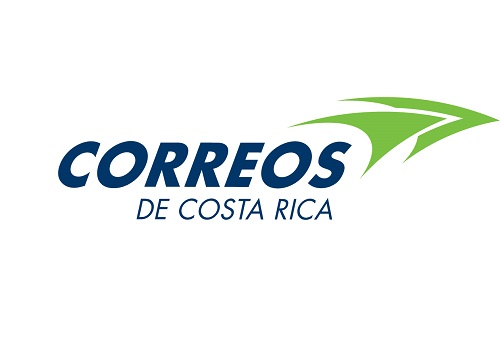
Going for gold: what the World Mail Award judges are looking for
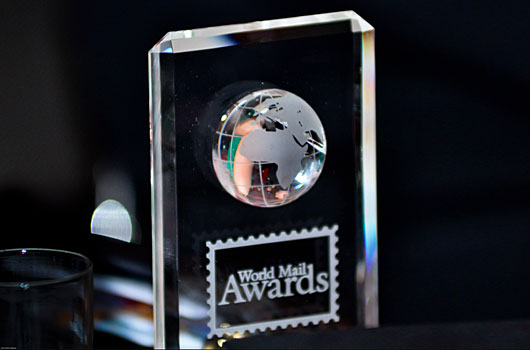
In the lead up to the 14th World Mail Awards in Berlin this June, Post & Parcel speaks to some of this year’s judges to get an insight into the judging process, find out what makes an application stand out to them and what advice they have for this year’s applicants. It is the day of the World Mail Awards and 20 key industry members from around the world are locked in a well-stocked conference room, hotly debating the merits of each project and initiative on the shortlist. Time is ticking as the panel have just hours before the winning names are placed into golden envelopes, ready to be revealed that night.
The World Mail Awards is the most prestigious award ceremony in the postal sector, recognising excellence and innovation. Many of the independent judges, who are all experts in their fields, return year after year to take up their place on the panel. It is a big commitment for the individuals but most agree it is time well spent. From those who want to support new talent and get inspired by the plethora of innovation in the sector to those who simply enjoy debating the hottest postal issues – everyone has a reason for getting involved.
One of the chairs for the awards is independent consultant Ingemar Persson. He sees being a judge as his contribution to the industry which he has been part of for more than 40 years. “If I can share some of my experience with my fellow judges that is great, and it is also a good way to follow the achievements and progress of the industry from the angle of all the applicants,” he explains. “It makes me happy when I see something new that really contributes to the long term evolution and expansion of the industry,” he adds.
Steve Smith, a consultant at Base 60, is constantly surprised by the standard of the applications and feels he gets a lot out of the process. “The perseverance demonstrated by new starts ups is endlessly impressive and inspires me in my own work,” he says.
Paul Donohoe, e-Business Programme Manager at UPU is returning for his seventh year as a judge. “The awards are a great chance to showcase the bright future of our industry. Being responsible for innovation at UPU I get real satisfaction from seeing the number of applicants putting forward innovative ideas growing year upon year,” he says. “I also enjoy seeing more applications from smaller countries with emerging markets such as countries in Eastern Europe or South America and finding out about the incredible things they are doing. Being involved in the process reminds me to think outside of the traditional markets in my everyday job.”
Another returning chairman is Elmar Toime, Director of E Toime Consulting Ltd who won the Industry Leadership Award himself in 2004 when he was CEO of New Zealand Post. Elmar is a great believer in the importance of the awards. “I’ve seen first-hand how motivating awards can be for hard-working people in companies. It is a way of recognising teams and people inside businesses – it’s not just PR,” he says.
Making hard decisions
Although the panel only meet in person on the day of the awards ceremony, emails fly back and forth across time zones for 12 weeks after the submission deadline. This gives the judges time to narrow down the applications to a shortlist and fight for the project or initiative which has impressed them the most.
Jacob Johnsen, Hybrid Mail Specialist, Ipostes says: “Once the judges engage in a dialogue about the nominees you really get a sense of what makes a winner. At the end of the day we must all agree, so you need to listen, read, debate and evaluate many different candidates,” he explains.
Walter Trezek, Managing Director of Document Exchange Network, has been in the industry for more than 30 years. He explains what the judges are looking for: “We are looking for solutions, applications, models to answer the current challenges and customer expectations. One thing we do have to take into account, when we are reading through the applications, is the different level of financial resources some applicants have access to,” he notes.
Alex Walsh from Nilex Consultancy Services says that for him one of the biggest challenges of being a judge is understanding the context of the application and not judging them as if all the projects are happening in your domestic market. “What might seem a simple and obvious initiative in one country with a highly developed postal market may in fact be revolutionary in a different, less well developed market,” he says.
What makes a quality application
The quality of the applications that the judges receive can be quite varied, from sharp and to the point to too verbose and repetitive, says Elmar Toime. “Sometimes applicants don’t really make a case – we are looking for practical and significant business achievements. For example, if we are talking about an innovation, is its potential impact on revenues or productivity meaningful in the scale of the company’s accounts? Is it a proven business initiative or a concept waiting to be tried? Is it an innovation in the context of the particular company submitting it, or has it been done elsewhere before and the applicant is in a way a ‘me too’ applicant?” he asks.
Paul Donohoe urges this year’s applicants to directly address the explicit and implied criteria for the award and not just provide a marketing brochure or product spec. “Sending marketing material makes it really difficult to interpret whether it is real evidence of innovation and success,” he says.
Alex Walsh agrees about the importance of sticking to the criteria. “Judges have a number of applications to read through so concise applications that provide just enough background information and detail so that we can understand the context are always appreciated!”
Steve Smith advises applicants to really think through their admissions and include all the necessary documentation. “You need to explain why this suggestion or program matters. Is it scalable to the client? If so, can it be to a point the client cannot remember creating mail without the applicant’s project? That in my opinion is what makes a winner.”
Recognising excellence
Once the winners have been decided upon the judges can hang up their hats and enjoy the Gala Dinner. “It is a true joy to see how much it means for hard working people to be rewarded at the ceremony. You can see how much it means to them when their name is announced and you can’t help imagining how they will feel when they return home with their trophy and can show that they have been recognised in an international environment,” says Ingemar Persson
“Seeing the people behind the applications is perhaps the real highlight,” says Walter Trezek: “So much work was done by those individuals and they really deserve the awards and the recognition of being shortlisted. Sharing the evening, and making them the centre of attention is very rewarding.”
Awards legacy
Steve Smith explains that his work doesn’t stop at the awards – he takes away what he has learnt during the process. “Once the results are announced and published I begin educating my clients about the best of the breed and discuss all the business practices and opportunities I have learnt about,” he says.
Jacob Johnson says that being a judge has changed how he sees the sector “Once you read about so many great ideas in so many different areas of the sector, you start looking for innovation in your everyday life. It suddenly feels like there is innovation all around!”
Following requests from a number of applicants, the deadline for applications to be submitted for the World Mail Awards 2014 has been extended to Friday 7th March, providing an extra few days to complete your entry.
So if you have yet to submit your application, here’s a quick reminder of how to do so.
TO ENTER
- Simply identify your project which you wish to enter.
- Select the appropriate World Mail Awards category.
- Complete the online entry form at www.mailawards.com
- Submit your entry before the extended deadline – 7th March.









